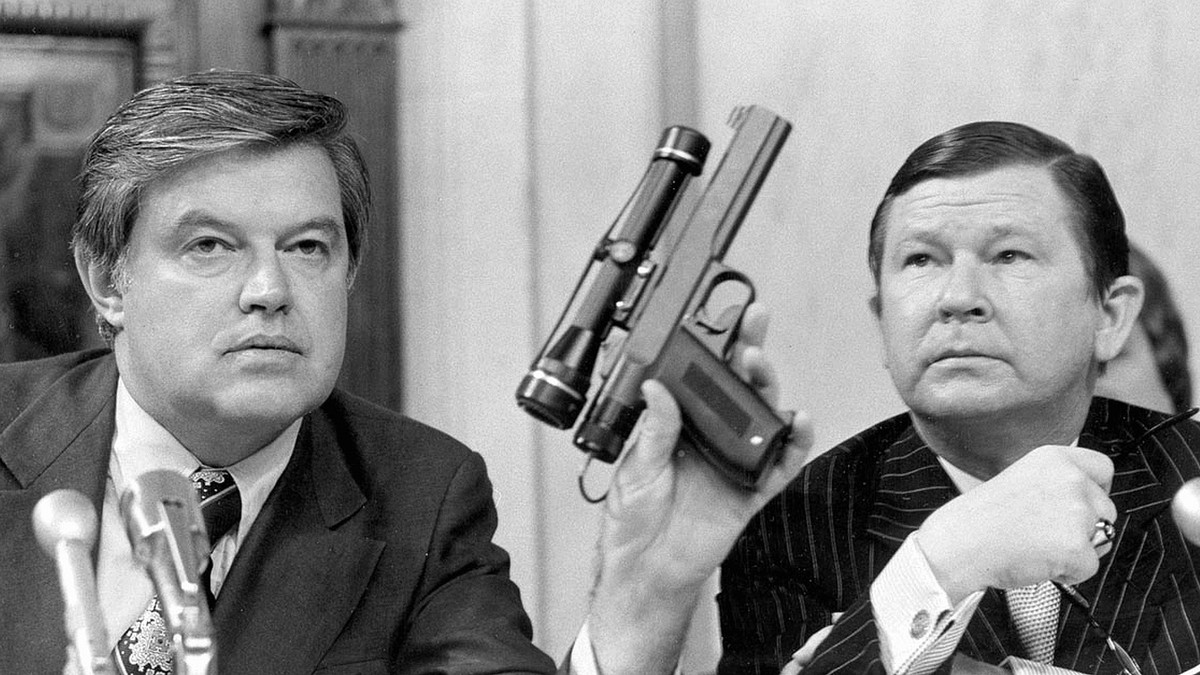Court to Decide Whether CIA Can Hide Documents About Poisoning Assassinations

Journalist J.M. Porpup had a simple question for the CIA. He filed a Freedom of Information Act Request (FOIA) on May 1, 2015 that asked the Agency for “any and all documents relating to CIA use of poison for covert assassinations.” The CIA responded to the request on May 21, 2015 and made clear it hadn’t even bothered to search its records for an answer to the question, suggesting that because assassinating people is illegal, it simply wouldn’t have documents on it. Now Porpup is taking the CIA to court in a case that may have far reaching consequences for the Freedom of Information Act and what documents the public is ultimately able to see.
Advertisement
The CIA’s response to the question about assassinations wasn’t a denial that it had engaged in such activity. It just explained that such activity is illegal: “Please refer to Executive Order 12333 which describes the conduct of intelligence activities, citation 2.11, which pertains to the prohibition on assassinations,” the brief response from the CIA read.
The cited executive order is straightforward. “No person employed by or acting on behalf of the United States Government shall engage in, or conspire to engage in, assassination,” the citation said. The CIA’s response to Porpup’s request for records is to handwave the issue away, not search for records, and point to a law indicating that the U.S. government assassinating people is illegal.
The CIA has a long history of both developing poisons and assassinating people. The details of both activities came to light during the Church Committee hearings of the 1970s. The most famous picture from the hearings is that of Rep. Frank Church (D-Idaho) holding up a specially designed poison dart gun the CIA had developed.
The list of operations the CIA attempted in its pursuit of poisoning Fidel Castro alone could fill a book. The Agency attempted to lace Castro’s shoes with thallium salts in an attempt to make his hair fall out, developed a special hallucinogen it planned to spray on him during a live broadcast, and created a pen that concealed a hypodermic needle full of poison it planned to use against Castro. All the plots failed and America learned about them, live on TV, throughout the 1970s.
Advertisement
As a result of the Church Committee hearings, Presidents Ford and Carter signed Executive Orders aimed at preventing U.S. involvement in political assassinations. That proscription has weakened since 9/11.
It’s possible that the CIA doesn’t have records related to its poisoning programs of the 1960s and ‘70s. The Agency routinely destroys records and evidence of its plots. It destroyed records on its involvement in the 1953 coup in Iran, files about its MKUltra mind control experiments, and video evidence of its use of torutre interrogating suspected terrorists.
But the CIA didn’t tell Porup that no records existed, it refused to search for them at all. In subsequent appeals, the CIA has claimed that, in denying the request for internal records of its well-documented development of poisons, it was following Agency policy regarding FOIA requests. It claimed, and lower courts agreed, that it did not have to share information about poisoning because it was following its own policies.
To MuckRock, a government transparency nonprofit that helps journalists (including those at VICE) file FOIA requests, Porup said that the CIA has a history of violating FOIA law and that it often does so by changing its own policies and telling the court it can’t comply with a request
“At the heart of this case is a fundamental transparency issue: Can federal agencies claim they follow an internal FOIA policy when responding to pattern-or-practice litigation, but then refuse to provide that policy?,” he said. “In a previous ruling, after CIA claimed that it had changed its practice to render the case moot, the lower court ruled that CIA does not have to produce a copy of its current policy, essentially letting the CIA say ‘Just Trust Us’ despite a long history of failing to actually search for requested documents.”
Advertisement
The case has made its way to the U.S. Court of Appeals for the D.C. Circuit. It’s ongoing, but you can listen to the opening arguments here.
Kel McClanahan, a lawyer with the National Security Counselors, is representing Porpup. MuckRock crowdfunded the legal fees. During the proceedings, McClanahan pointed out that the law is clear and the CIA has to search for files, regardless of who asked for them and how it might reflect on the Agency. “If an internal investigation happened, they have operational files for it,” he said. “They did not represent that they did. That, by itself, is enough to send it back for adequacy of the search over operational files.”
What’s at stake here is not just the historical record, but FOIA itself. Again, the CIA hasn’t even clarified what internal policy it’s following or produced proof of that policy. “If successful, this precedent could make it clear that federal agencies must follow the best evidence rule in FOIA lawsuits, and if they claim that they have a certain policy—as the CIA is now claiming they do— they must back that up with proof beyond a self-serving declaration cherry-picking the parts that help their case,” Porup said on MuckRock.
“The CIA lie, cheat, steal, blackmail, torture, rape, murder, and commit genocide for Wall Street. They are a disgrace to our country, and belong on trial at The Hague for their crimes against humanity,” Porup told Motherboard.
*** This article has been archived for your research. The original version from VICE can be found here ***
